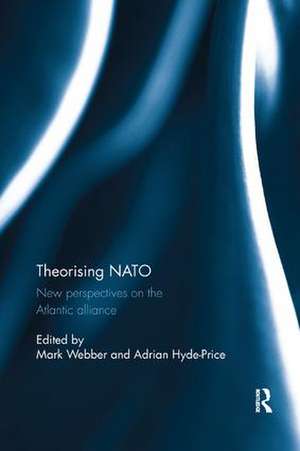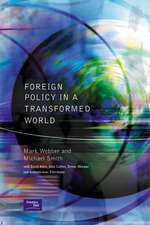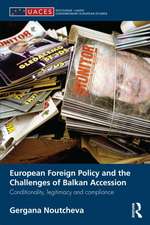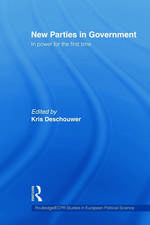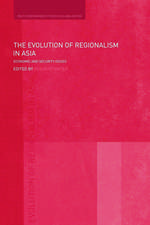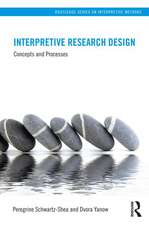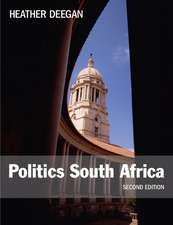Theorising NATO: New perspectives on the Atlantic alliance
Editat de Mark Webber, Adrian Hyde-Priceen Limba Engleză Paperback – 23 oct 2017
Scholarship on NATO is often preoccupied with key episodes in the development of the organisation and so, for the most part, has remained inattentive to theory.
This book addresses that gap in the literature. It provides a comprehensive analysis of NATO through a range of theoretical perspectives that includes realism, liberalism and constructivism, and lesser-known approaches centred on learning, public goods, securitisation and risk. Focusing on NATO's post-Cold War development, it considers the conceptualisation, purpose and future of the Alliance.
This book will be of interest to students and scholars of international organisation, international relations, security and European Politics.
| Toate formatele și edițiile | Preț | Express |
|---|---|---|
| Paperback (1) | 438.14 lei 6-8 săpt. | |
| Taylor & Francis – 23 oct 2017 | 438.14 lei 6-8 săpt. | |
| Hardback (1) | 1057.09 lei 6-8 săpt. | |
| Taylor & Francis – 23 noi 2015 | 1057.09 lei 6-8 săpt. |
Preț: 438.14 lei
Nou
83.85€ • 87.22$ • 69.22£
Carte tipărită la comandă
Livrare economică 15-29 aprilie
Specificații
ISBN-10: 0815371098
Pagini: 268
Ilustrații: 3 Line drawings, black and white; 7 Tables, black and white; 3 Illustrations, black and white
Dimensiuni: 156 x 234 x 14 mm
Greutate: 0.5 kg
Ediția:1
Editura: Taylor & Francis
Colecția Routledge
Locul publicării:Oxford, United Kingdom
Public țintă
Postgraduate and UndergraduateCuprins
Recenzii
Federico Palmieri, Istituto Affari Internazionali (IAI), The International Spectator
Descriere
Scholarship on NATO is often preoccupied with key episodes in the development of the organisation and so, for the most part, has remained inattentive to theory.
This book addresses that gap in the literature. It provides a comprehensive analysis of NATO through a range of theoretical perspectives that includes realism, liberalism and constructivism, and lesser-known approaches centred on learning, public goods, securitisation and risk. Focusing on NATO's post-Cold War development, it considers the conceptualisation, purpose and future of the Alliance.
This book will be of interest to students and scholars of international organisation, international relations, security and European Politics.
